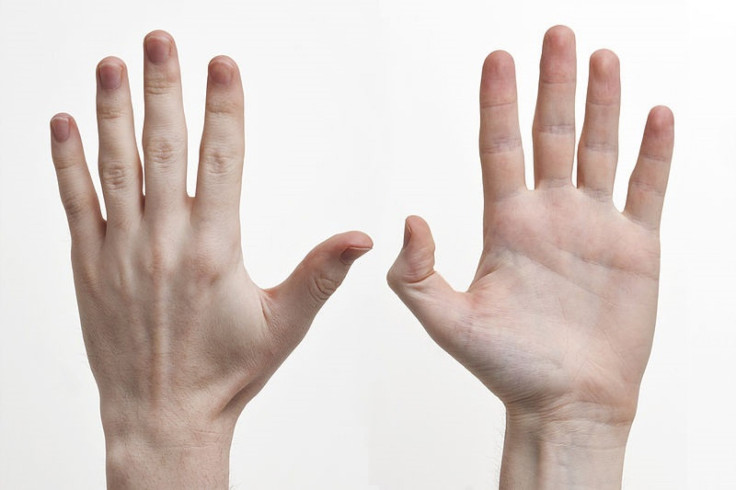Left-Handedness And Schizophrenia Linked, Study Suggests, But Didn’t We Already Debunk This Theory?

Are left-handed people more likely to develop psychotic disorders than right-handed people? A new study found that 40 percent of schizophrenic patients from an urban public outpatient psychiatric clinic were left-handed, compared to 10 percent for the population as a whole.
This led scientists from the U.S., including researchers from Yale University and the University of Iowa, to suggest that people who are left-handed are more likely to suffer from mental illness like schizophrenia than mood disorders like depression. According to the study, published in the journal SAGE Open, the percentage of left-handers in the sample group who were affected by mood disorders was around 11 percent, but almost half of schizophrenic patients were left-handed.
“In general, people with psychosis are those who have lost touch with reality in some way, through hallucinations, delusions, or false beliefs, and it is notable that this symptom constellation seems to correlate with being left-handed,” Jadon Webb, a child and adolescent psychiatry fellow at the Yale University Child Study Center, said in a statement on the university’s website.
Webb and his team determined the frequency of left-handedness within a group of patients with various mental disorders. They looked at 107 patients from an “urban, low-income community.” They asked patients a simple question: What hand do you write with?
“Doing a simple analysis meant that there were no obstacles to participating and we had a very high participation rate of 97 percent,” Webb said. “Patients dealing with serious symptoms of psychosis might have had a harder time participating in a more complicated set of questions or tests.”
This isn’t the first time researchers have suggested a relationship between left-handedness and mental illness. In 1977, psychologist Theodore Blau, the first clinician in independent practice to be elected president of the American Psychological Association, argued that left-handed children were more likely to develop mental diseases like schizophrenia. According to an article in The New Yorker, Blau referred to these kids as “sinister children,” and noted that left handed children were more prevalent among kids who showed poorer performance in school and kids with behavior issues.
Another psychologist, Stanley Coren, claimed that left-handed people lived shorter, more underprivileged lives. He also argued that the left-handed were more likely to experience delays in maturity.
But these theories were largely debunked over the past few decades, according to The New Yorker. A 2010 study of nearly 1,500 individuals, many of whom had schizophrenia, concluded that being left-handed did not make a person more likely to develop various mental illnesses.
“Non-right-handedness was not associated with disproportionate neurocognitive disadvantage or with grey matter volume asymmetries in the frontal pole, lateral occipital pole or temporal pole,” the study noted.
On the contrary, some studies have even found a relationship between left handed people and improved cognition. A 1986 study found the prevalence of left handed students among those who scored in the op of their age group on the S.A.T. to be 15 percent – higher than the incidence of left-handedness in the general population.
One thing is for sure: the recent study of left-handedness and schizophrenia will have to be validated and tested. If there is a correlation between left-handedness and schizophrenia, physicians could use this information to identify the first signs of psychoses. These wouldn’t be used to brand left-handers as more likely to become psychotic,” Time noted, “but could help to select out those who are at highest risk of developing the mental disorders and introduce them to treatments as early as possible.”
“Finding biomarkers such as this can hopefully enable us to identify and differentiate mental disorders earlier, and perhaps one day tailor treatment in more effective ways,” Webb said.
© Copyright IBTimes 2024. All rights reserved.






















